- Home
- Rose Tremain
Sacred Country
Sacred Country Read online
ROSE TREMAIN
Sacred Country
Contents
Cover
Title
Dedication
Acknowledgements
About the Author
Also by Rose Tremain
PART ONE
Chapter One, 1952
The Two-Minute Silence
The Beautiful Baby Contest
Mary
The Blue Yodeller
Chapter Two, 1954
In Harker’s Cellar
Livia’s Dictionary
Mary
Chapter Three, 1955
‘The Last Loomis’
Estelle
‘Light, light …’
Chapter Four, 1957
Mary
Oh, Sandra
In the Surgery
Unbaptised Children
Chapter Five, 1958
Estelle
Mary
The Good Man
Magic Boxes
PART TWO
Chapter Six, 1961
A Storm
Timmy’s Angle (1)
The Forest of Long Ago
Chapter Seven, 1962
The Hired Man
Mary
In One Place
Chapter Eight, 1963
Estelle
Calculus
Mary
Chapter Nine, 1964
Marshall Street
One Sunday
What Is There?
Mary
PART THREE
Chapter Ten, 1966
‘Far from Crep’
Estelle
A Nose for It
Chapter Eleven, 1967
Mary
The Sorrow Party
Timmy’s Angle (2)
Something Different
Chapter Twelve, 1968
Revolution and Revelation
Caesar, Waiting
Chapter Thirteen, 1970
Estelle
Mary
Facing West
Chapter Fourteen, 1971
As Far As It Goes
Forms of Address
Mary
Chapter Fifteen, 1972
Transillumination
Back in ’39
Corpus Debile
Mary
PART FOUR
Chapter Sixteen, 1973
Doodle-ei-dip
Mary
Estelle
Chapter Seventeen, 1974
Hallowed Ground
Heartless River
Chapter Eighteen, 1975
Martin
Chapter Nineteen, 1976
Martin
Chapter Twenty, 1980
Estelle
Copyright
To the memory
of Bernie Schweid
ACKNOWLEDGEMENTS
I would like to thank the following people, without whose knowledge, assistance and generosity this novel could not have been written:
Joan Bakewell, Janine Jacono, Victor Morris, Marc Larousse, Don Morant, Prebend Hertoft, Lee Goerner, Liz Hodgkinson, Ann Cook, Carolyn Dobbins, Ray Wix, Jeannie Sealey, John Lewis, Robert Dudley, Anita Cook.
The author and publishers are grateful to Faber & Faber Ltd for permission to quote from The Hollow Men by T. S. Eliot.
The author and publishers are grateful for permission to reproduce words from songs as follows:
The Yodelling Cowboy, words and music by Jimmy Rodgers, Frankie and Johnny, sung by Jimmy Rodgers, and I’m working on the building, words by A. P. Carter: used by kind permission of Peermusic (UK) Ltd, London.
Rose Marie, Early Morning Rain and Alone and Forsaken: reproduced by kind permission of Warner Chappell Music Ltd.
Every effort has been made to trace the holders of copyrights. Any inadvertent omissions of acknowledgement or permission can be rectified in future editions.
SACRED COUNTRY
Rose Tremain is a writer of novels, short stories and screenplays. She lives in Norfolk and London with the biographer Richard Holmes. Her books have been translated into numerous languages, and have won many prizes including the Whitbread Novel of the Year, the James Tait Black Memorial Prize, the Prix Femina Etranger, the Dylan Thomas Prize, the Angel Literary Award and the Sunday Express Book of the Year.
Restoration was shortlisted for the Booker Prize and made into a movie; The Colour was shortlisted for the Orange Prize and selected by the Daily Mail Reading Club. Rose Tremain’s most recent collection, The Darkness of Wallis Simpson, was shortlisted for both the First National Short Story Award and the Frank O’Connor International Short Story Award, and her latest novel, The Road Home, was shortlisted for the Orange Prize. Three of her novels are currently in development as films.
ALSO BY ROSE TREMAIN
Novels
Sadler’s Birthday
Letter to Sister Benedicta
The Cupboard
The Swimming Pool Season
Restoration
The Way I Found Her
Music & Silence
The Colour
The Road Home
Short Story Collections
The Colonel’s Daughter
The Garden of the Villa Mollini
Evangelista’s Fan
The Darkness of Wallis Simpson
For Children
Journey to the Volcano
I live without inhabiting
Myself–in such a wise that I
Am dying that I do not die
– St John of the Cross
(Tr. ROY CAMPBELL)
‘Seems, madam? Nay, it is. I know not “seems”.’
– ‘Hamlet’ Act I, Scene ii
Between the idea
And the reality
Between the motion
And the act
Falls the Shadow
– ‘The Hollow Men’
T. S. ELIOT
Part One
CHAPTER ONE
1952
The Two-Minute Silence
On February 15th 1952 at two o’clock in the afternoon, the nation fell silent for two minutes in honour of the dead King. It was the day of his burial.
Traffic halted. Telephones did not ring. Along the radio airwaves came only hushed white noise. In the street markets, the selling of nylons paused. In the Ritz, the serving of luncheon was temporarily suspended. The waiters stood to attention with napkins folded over their arms.
To some, caught on a stationary bus, at a loom gone suddenly still, or at a brass band rehearsal momentarily soundless, the silence was heavy with eternity. Many people wept and they wept not merely for the King but for themselves and for England: for the long, ghastly passing of time.
On the Suffolk farms, a light wet snow began to fall like salt.
The Ward family stood in a field close together. Sonny Ward had not known – because the minute hand had fallen off his watch – at what precise moment to begin the silence. His wife, Estelle, hadn’t wanted them to stand round like this out in the grey cold. She’d suggested they stay indoors with a fire to cheer them and the wireless to tell them what to do, but Sonny had said no, they should be out under the sky, to give their prayers an easier route upwards. He said the people of England owed it to the wretched King to speak out for him so that at least he wouldn’t stammer in Heaven.
So there they were, gathered round in a potato field: Sonny and Estelle, their daughter, Mary, and their little son, Tim. Pathetic, Sonny thought they looked, pathetic and poor. And the suspicion that his family’s silence was not properly synchronised with that of the nation as a whole annoyed Sonny for a long time afterwards. He’d asked his neighbour, Ernie Loomis, to tell him when to begin it, but Loomis had forgotten. Sonny had wondered whether there wouldn’t be
some sign – a piece of sky writing or a siren from Lowestoft – to give him the order, but none came, so when the hour hand of his watch covered the two, he put down his hoe and said: ‘Right. We’ll have the silence now.’
They began it.
The salt snow fell on their shoulders.
It was a silence within a silence already there, but nobody except Mary knew that its memory would last a lifetime.
Mary Ward was six years old. She had small feet and hands and a flat, round face that reminded her mother of a sunflower. Her straight brown hair was held back from her forehead by a tortoiseshell slide. She wore round glasses to correct her faulty vision. The arms of these spectacles pinched the backs of her ears. On the day of the silence she was wearing a tweed coat too short for her, purple mittens, wellingtons and a woollen head scarf patterned with windmills and blue Dutchmen. Her father, glancing at her blinking vacantly in the sleet, thought her a sad sight.
She had been told to think about King George and pray for him. All she could remember of the King was his head, cut off at the neck on the twopenny stamp, so she started to pray for the stamp, but these prayers got dull and flew away and she turned her head this way and that, wondering if she wasn’t going to see, at the edge of her hopeless vision, her pet guineafowl, Marguerite, pecking her dainty way over the ploughed earth.
Estelle, that very morning, had inadvertently sewn a hunk of her thick black hair to some parachute silk with her sewing machine. She had screamed when she saw what she’d done. It was grotesque. It was like a crime against herself. And though now, in the silence, Estelle made herself be quiet, she could still hear her voice screaming somewhere far away. Her head was bowed, but she saw Sonny look up, first at Mary and then at her. And so instead of seeing the dead King lying smart in his naval uniform, she saw herself as she was at that precise moment, big in the flat landscape, beautiful in spite of her hacked hair, a mystery, a woman falling and falling through time and the fall endless and icy. She put her palms together, seeking calm. ‘At teatime,’ she whispered, ‘I shall do that new recipe for flapjacks.’ She believed her whispering was soundless, but it was not. Estelle’s mind often had difficulty distinguishing between thoughts and words said aloud.
Sonny banged his worn flat cap against his thigh. He began to cough. ‘Shut you up, Estelle!’ he said through the cough. ‘Or else we’ll have to start the silence again.’
Estelle put her hands against her lips and closed her eyes. When Sonny’s cough subsided, he looked down at Tim. Tim, his treasure. Timmy, his boy. The child had sat down on a furrow and was trying to unlace his little boots. Sonny watched as one boot was tugged off, pulling with it a grey sock and revealing Timmy’s foot. To Sonny, the soft foot looked boneless. Tim stuck it into the mud, throwing the boot away like a toy.
‘Tim!’ hissed Mary. ‘Don’t be bad!’
‘Shut you up, girl!’ said Sonny.
‘I can’t hear any silence at all,’ said Estelle.
‘Begin it again,’ ordered Sonny.
So Mary thought, how many minutes is it going to be? Will it get dark with us still standing here?
And then the idea of them waiting there in the field, the snow little by little settling on them and whitening them over, gave Mary a strange feeling of exaltation, as if something were about to happen to her that had never happened to anybody in the history of Suffolk or the world.
She tried another prayer for the King, but the words blew away like paper. She wiped the sleet from her glasses with the back of her mittened hand. She stared at her family, took them in, one, two, three of them, quiet at last but not as still as they were meant to be, not still like the plumed men guarding the King’s coffin, not still like bulrushes in a lake. And then, hearing the familiar screech of her guineafowl coming from near the farmhouse, she thought, I have some news for you, Marguerite, I have a secret to tell you, dear, and this is it: I am not Mary. That is a mistake. I am not a girl. I’m a boy.
This was how and when it began, the long journey of Mary Ward.
It began in an unsynchronised silence the duration of which no one could determine, for just as Sonny hadn’t known when to begin it, so he couldn’t tell when to end it. He just let his family stand out there in the sleet, waiting, and the waiting felt like a long time.
The Beautiful Baby Contest
In April that year, Sonny lost eleven lambs to freezing weather. Anger always made him deaf. The more angry he grew, the louder he shouted.
Part of his left ear had been shot off in the war. He’d seen a small piece of himself floating away on the waters of the Rhine. What remained was a branching bit of cartilege, like soft coral. In his deaf rages, Sonny would gouge at the coral with his thumb, making blood run down his neck.
Sonny took the frozen lambs to his neighbour, Ernie Loomis, to be butchered and stored in his cold room. On Sonny’s farm nothing was allowed to go to waste. And he couldn’t bear the way Estelle was becoming careless with things in the house, so absent-minded about everything that sometimes she forgot what she was holding in her hands. He wanted to hit her when this happened, hit her head to wake her thoughts up. That day when she’d sewn her hair to the piece of silk, he’d made her unpick the seam, stitch by stitch with a razor blade, until all the hair was out.
In a silver frame on the kitchen mantelpiece Estelle kept a photograph of her mother. She had been a piano teacher. The photograph showed her as she’d been in 1935, a year before her sudden death in a glider. She had belonged to the Women’s League of Health and Beauty and this was how she remained in Estelle’s mind – healthy, with her hair wavy and gleaming, beautiful with a gentle smile. ‘Gliders, you know,’ Estelle had once told Mary in the whispery voice she used when she talked about her mother, ‘are also, in fact, very beautiful things.’ And it was suggested to Mary, even after she began wearing her glasses, that she had some of Grandma Livia’s looks. ‘I think,’ Estelle would murmur, ‘that you will grow up to be quite like her.’
Mary was fond of the photograph of her grandmother. She looked quiet and peaceful and Mary was fairly sure she hadn’t said thoughts out loud. And when she thought about her death in the glider, she didn’t imagine it crashing into a wood or plummeting down onto a village; she dreamed of it just drifting away into a white sky, at first a speck, white on white, then merging into the sky, dissolving and gone. But she had never been able to imagine herself growing up to be like Grandma Livia. She knew she would not become beautiful or join the Women’s League, whatever a Women’s League might be. And after the day of the two-minute silence, she knew she would not even be a woman. She didn’t tell her mother this and naturally she didn’t tell her father because since the age of three she had told him nothing at all. She didn’t even tell Miss McRae, her teacher. She decided it was a secret. She just whispered it once to Marguerite and Marguerite opened her beak and screeched.
After the death of the lambs, some warm weather came. In May, the community of Swaithey held its annual fête in a field outside the village, well shaded by a line of chestnut trees. These fêtes always had as their main attraction a competition of some sort: Best Flower Arrangement, Child’s Most Original Fancy Dress, Largest Vegetable, Most Obedient Dog, Most Talented Waltzer and Quickstepper. Prizes were generous: a dozen bottles of stout, a year’s subscription to Radio Fun or Flix, a sack of coal. This year there was to be a competition to find Swaithey’s Most Beautiful Baby. Entry coupons were threepence, the prize unknown.
Estelle’s faulty imagination was tantalised by the idea of an unknown prize. The word ‘unknown’ seemed to promise something of value: a visit to the Tower of London, a Jacqmar scarf, a meeting with Mr Churchill. She had no baby to enter, yet she refused to let this precious unknown elude her altogether. She bought an entry coupon and took it to her friend, Irene Simmonds.
Irene lived alone with her illegitimate baby, Pearl. The father had been Irish and worked ‘in the print’ in Dublin. ‘He tasted of the dye,’ Irene had told Estell
e, but the taste quickly faded and was gone and no word, printed or otherwise, came out of Dublin in answer to Irene’s letters. She was a practical woman. She had an ample smile and a plump body and a heart of mud. For a long time, she dreamed of the Irish printer but her dreams never showed. All that showed was her devotion to Pearl.
When Estelle came with the threepenny coupon, Irene was feeding Pearl. Her white breasts were larger than the baby’s head. They could have nourished a tribe. Pearl’s little life was lived in a sweet, milky oblivion.
Estelle sat down with Irene and put the entry ticket on the kitchen table. ‘The unknown,’ she said, ‘is always likely to be better.’
Irene filled out the coupon, in the careful handwriting she’d perfected to try to win the printer’s devotion: Entrant: Pearl Simmonds, Born April the 22nd, 1951. While she did this, Estelle took Pearl on her lap and looked at her, trying to imagine herself as a judge of Swaithey’s Most Beautiful Baby. Pearl’s hair was as pale as lemonade. Her eyes were large and blue and liquid. Her mouth was fine like Irene’s, with the same sweetness to it. ‘You must win, cherub,’ Estelle instructed Pearl, ‘our hopes are on you.’
Sonny refused to go to the fête. He had no money to spare on trifles, no time to waste on fancy dress of any kind.
Estelle went in the pony cart with Mary and Tim. It was a hot day, a record for May, the wireless said. The lanes were snowy with Damsel’s Lace. Mary wore a new dress made from a remnant and hand-smocked by Estelle. In the pony cart she began to detest the feel of the smocking against her chest and kept clawing at it.
They stopped at Irene’s cottage. Pearl was sleeping in a wicker basket, wrapped in her white christening shawl. They laid the basket on some sacks that smelled of barley. After a bit, Pearl began to snore. Mary had never heard anyone snore except her father, let alone a baby.
‘Why is she?’ Mary asked Irene.
‘Oh,’ said Irene, ‘she’s always been a snorer, right from the off.’
Mary knelt down in the cart and looked at Pearl. The snoring entranced her so, it took her mind off the smocking.
The Beautiful Baby Contest was to be held in a large green tent, ex-army. The mothers would line up on hard chairs and hold their babies aloft as the judges passed. From thirty-six entrants, five would be selected for a second round. There would be one winner and four consolation prizes. All the way there in the cart, Estelle thought about the word ‘consolation’ and how she didn’t like it at all. Things which promised to console never did any such thing.

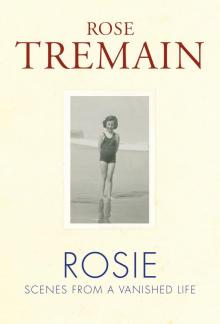 Rosie
Rosie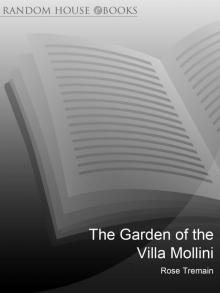 The Garden of the Villa Mollini
The Garden of the Villa Mollini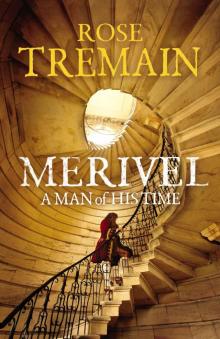 Merivel: A Man of His Time
Merivel: A Man of His Time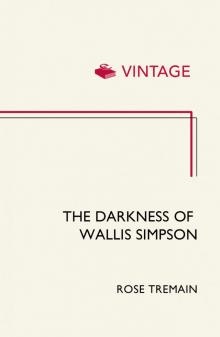 The Darkness of Wallis Simpson
The Darkness of Wallis Simpson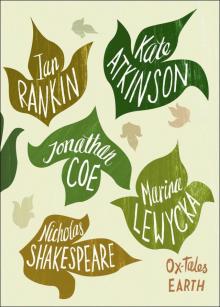 Earth
Earth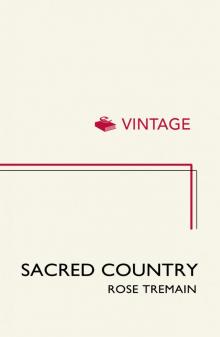 Sacred Country
Sacred Country The Swimming Pool Season
The Swimming Pool Season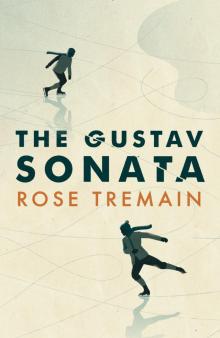 The Gustav Sonata
The Gustav Sonata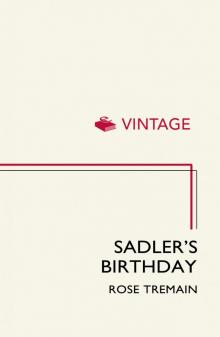 Sadler's Birthday
Sadler's Birthday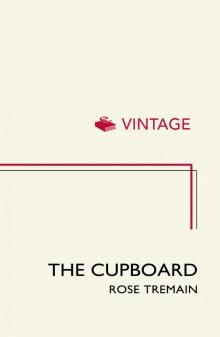 The Cupboard
The Cupboard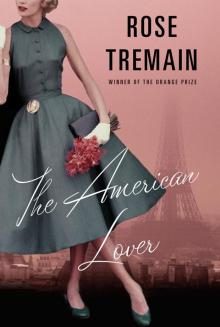 The American Lover
The American Lover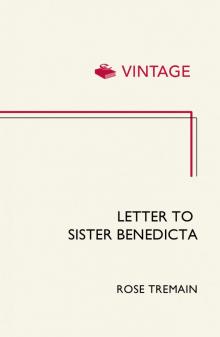 Letter to Sister Benedicta
Letter to Sister Benedicta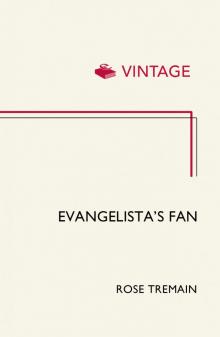 Evangelista's Fan
Evangelista's Fan Restoration
Restoration The Road Home
The Road Home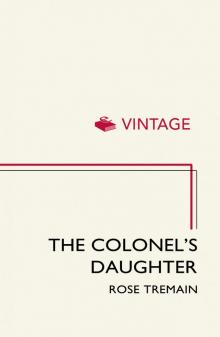 The Colonel's Daughter
The Colonel's Daughter The Way I Found Her
The Way I Found Her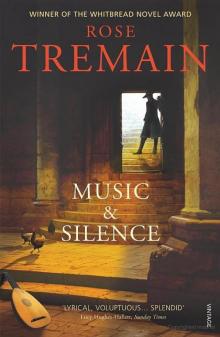 Music & Silence
Music & Silence